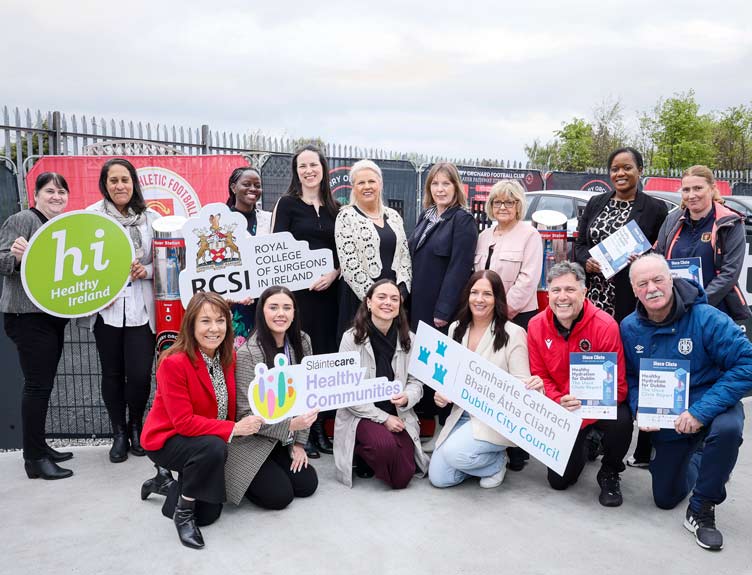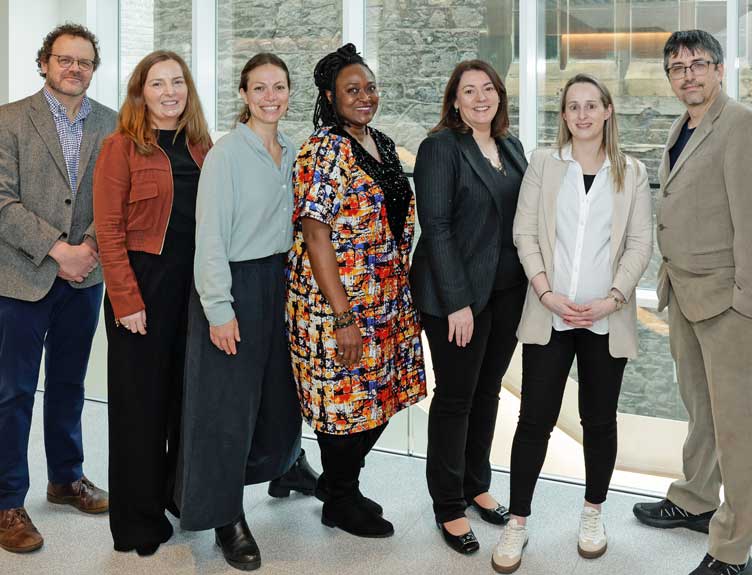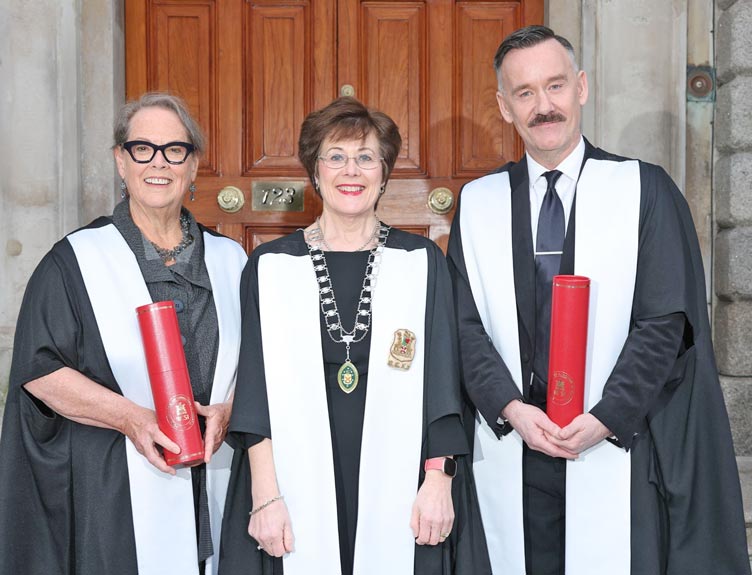RCSI-led intervention improves access to free drinking water and improves vital hydration knowledge in Dublin communities

A novel drinking water intervention led by RCSI has resulted the dispensing of over 900 litres of water and a 90% reduction in single-use waste.
The initiative also saw improved hydration-related knowledge of 16% in children and 18% in their parents. The Uisce Cliste project saw the installation of smart water fountains at two Dublin football clubs along with a series of healthy living education session.
The project was developed to ensure greater access to free, high-quality drinking water in public spaces which is vital to public health and a crucial step toward addressing health inequalities and supporting well-being.
The smart water fountains were installed at Cherry Orchard Football Club and Ballyfermot United Football Club and reusable bottles were distributed to club members. In Cherry Orchard Football Club, a comprehensive education programme was also introduced, including nine 40-minute sessions tailored for children, adolescents, and adults. These sessions reached 487 individuals – significantly surpassing the goal of 400 – which led to the improved hydration-related knowledge.
As the report notes, to ensure equitable access across Ireland, national policies must be enacted. Every community should benefit from accessible, high-quality public drinking water, particularly in settings such as parks, schools, government buildings, hospitals, and sports clubs. Such measures would contribute to achieving the goals of Healthy Ireland, which include promoting better nutrition, reducing health disparities, and cutting plastic waste.
Principal investigator and senior author of the report, RCSI’s Dr Grace O'Malley, said: “It is fantastic to have the opportunity to highlight the importance of hydration for health. Working on the Healthy Hydration for Dublin, Uisce Cliste Project and Report has been so rewarding as we have attempted to support the health of people living in Cherry Orchard and Ballyfermot. The Cherry Orchard Football Club and Ballyfermot United Football Club have been wonderful health advocates for their members. This project is a concrete start to healthier football clubs and we look forward to many other sports clubs joining the initiative across Dublin and Ireland.”
Joanna Kelly, Project Co-Lead and Dublin City Council’s Local Development Officer for Cherry Orchard Ballyfermot, added: “This Uisce Cliste Report showcases the real impact of working directly with communities and stakeholders to design meaningful, evidence-informed interventions. It highlights how public realm improvements, combined with education, can drive positive impacts supporting health in our neighbourhoods.”
Key national-level recommendations
- Hydration plans for SHCP areas: Community-specific hydration plans should be developed across all Sláintecare Healthy Community Programme areas. These should be based on local needs and assets and should include clear outcome metrics and annual monitoring. Structures must be in place to support sustained collaboration between communities, sports organisations, educational settings and all levels of Government.
- Investing in youth and education: Enhanced capital funding for sports clubs is essential to support hydration initiatives. Dedicated funding for healthy hydration from early years through secondary school is needed. Government departments must collaborate to embed hydration literacy within existing nutrition and education programmes, including HSE initiatives and Department of Education curricula. Schools should not offer sugar-sweetened or artificially sweetened beverages as part of free school meals.
- Universal water access: All public facilities, including parks and sports clubs, should provide free, high-quality drinking water. A national mapping of existing infrastructure is essential to identify and address regional disparities in access.
- Regulation of sweetened beverages: Building on Ireland’s sugar-sweetened drinks tax, stronger regulation of marketing and advertising of such beverages is needed. This should work in tandem with efforts to promote water consumption, particularly to safeguard the oral and general health of children, adolescents, and adults.
- A national hydration education campaign: A broad public awareness campaign is required to reinforce the importance of drinking water for human health. This campaign should be underpinned by evidence and aligned with national health strategies.
Those involved in the project noted that its success demonstrates what is possible through authentic community collaboration, research-informed design, and a clear policy focus. By supporting hydration literacy and optimising infrastructure, we can empower healthier, more equitable communities and support positive environmental impact.
The findings offer a blueprint for scaling similar initiatives nationwide and affirm the critical role of public health infrastructure in shaping healthier futures.



